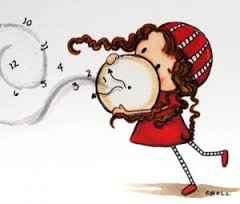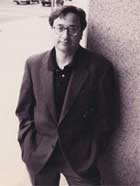Famed theoretical physicist Steph en Hawking, he of the wrenching 2014 movie The Theory of Everything, says the universe has not existed forever and in fact began some 15 billion years ago. In his words, “this is probably the most remarkable discovery of modern cosmology.” (What, better than Amazon Prime?)
en Hawking, he of the wrenching 2014 movie The Theory of Everything, says the universe has not existed forever and in fact began some 15 billion years ago. In his words, “this is probably the most remarkable discovery of modern cosmology.” (What, better than Amazon Prime?)
Encouragingly, Hawking sees a long future ahead for our beloved universe, at least 20 billion years. On the other hand, those of us hoping against hope that eventually time may be pretzeled into reverse are likely to be disappointed. Hawking believes that we will all continue to grow older and time “is not going to go backwards.”
Closer to earth, and thank heaven for at least some non-physicists, Time magazine’s Susanna Schrobsdorff makes a fascinating case that “time is no longer a river; it’s a looping series of digital paths.” So what changed? Basically, computers pulled the trigger. “Most of us type more than we talk these days. And the more we live in this parallel digital world, the blurrier the line gets between present and past. Because when nothing is lost, nothing is past.” Schrobsdorff notes that digital mechanisms help ensure that practically nothing ever goes away. “ . . . For our children, having constant, immediate access to every memory is normal.” That deluxe meatball sub you photographed and posted on Facebook is liable to float forever in cyberspace like a note in a bottle, cast seaward by Peter Pan.
Even closer to earth, an “older than dirt” quiz landed in my digital mailbox a few weeks ago. The instructions asked us trivia-sensitive readers to see how many listed items we actually remembered, excluding those we were merely told about. Hmm, that’s pretty hard to resist, said my ever youthful (well, one can hope) brain. If I may share them:
1. Blackjack chewing gum
2. Wax Coke-shaped bottles with colored sugar water
3. Candy cigarettes
4. Soda pop machines that dispensed glass bottles
5. Coffee shops or diners with table side jukeboxes
6. Home milk delivery in glass bottles with cardboard stoppers
7. Party lines on the telephone
8. Newsreels before the movie
9. P.F. Flyers
10. Butch wax
11. TV test patterns that came on at night after the last show and were there until TV shows started again in the morning.
12. Peashooters
13. Howdy Doody
14. 45 RPM records
15. S&H green stamps
16. Hi-fi’s
17. Metal ice trays with lever
18. Mimeograph paper
19. Blue flashbulb
20. Packard cars
21. Roller skate keys
22. Cork popguns
23. Drive-in theaters
24. Studebaker cars
25. Wash tub wringers
Well, I remembered all but three of these golden oldies (7, 20 and 25) and was thus classified “older than dirt.” A far cry from people who remembered five or less and were thus still young (ageist translation: greenhorns).
It’s perfectly normal for humans to think about time, at least when they have the time. Like during a timeout. Or when the earth stops moving under their feet, per Carol King lyrics perhaps. I ran down this rabbit hole several times recently, such as when reading Gerald Clarke’s fascinating 1988 biography of Munchkin-esque writer Truman Capote. Monroeville, Alabama’s child of destiny. You remember Capote (or should he have been #26 on the dirt list above?), the odd looking and sounding little literary giant who wrote such classics as Breakfast at Tiffany’s and In Cold Blood.
Speaking of breakfast, Capote didn’t stay a southern fried shrimp due to any food shortage growing up in Monroeville. As Clarke notes, breakfast was the big meal of the day and featured (hang on tight, now) “ham, eggs, and pancakes, of course; but also, in almost excessive display of the land’s bounty, fried chicken, pork chops, catfish, and squirrel, according to the season. Along with all that, there would be grits and gravy, black-eyed peas, collards (with cornbread to sop up the collard liquor), biscuits and homemade jams and preserves, pound cake, sweet milk, buttermilk, and coffee flavored with chicory.” (Yikes, pass the Alka-Seltzer.)
And talk about a small world! I attended the same high school (Nicolet) outside Milwaukee as uber-celebrity Oprah Winfrey, albeit a year apart, and she was barely there long enough to sharpen her pencils. My wife Jane graduated from Greenwich High School, in Connecticut. Capote went there, too, for several years. But many years before Jane got there, which means they teened around in entirely different worlds. Or did they? Greenwich was comparatively rural back in Capote’s time (with a population of only about 36,000) but has been a comfortable bedroom community for New York City commuters since, well, at least back in the washtub wringer days.
Speaking of high school, I still sometimes think of that herky-jerky time in my life when lacking enough madras shirts, penny loafers and V-neck sweaters, one was just not, well, timely. We had rock and roll back then in the mid-60’s, but it was pretty tame (hokey?) compared to just a few years later. Listening now to Eric Clapton and Steve Winwood’s fabulous February 2008 concert recording at Madison Square Garden, I keep wanting to somehow transport that entire shebang back to my high school auditorium. Hocus pocus! What fun to be a fly on the wall (little future-flyboy nerd?) and watch the looks on my classmates’ and teachers’ faces as they listened to some of the best straight ahead rock ever recorded. By British musicians who were scarcely older than us. Sort of a time and geography warp, wrapped in an anachronism. Digital contraband?
Back to Capote for a moment. Guess who he lived near in Monroeville? Yup, Harper Lee. They were friends then as kids and remained close. Lee created memorable characters in To Kill a Mockingbird, one of whom was based on nearly translucent young Truman. Both Capote and Lee shared gifted writers’ ability to amble effortlessly across time and space while spooling up characters that bounce off the pages of the reader’s life vertically in real time.
Time surely is a funny thing . . . elastic and subjective yet unyielding, merciless. Fast as light leavened with decelerated molasses. “Only yesterday” has a way of evolving from a life sentence ago when you’re in high school and things are going badly right before prom to barely moments when you’re well past that ‘welcome to the fold’ letter from AARP. I wonder what might happen if everyone were polled and asked what year they’d like it to be if they had a choice. Would we take a breath and notice only people absorbed in social media while tripping over a man having a stroke or would they be chewing Blackjack gum feverishly while running around in their PF Flyers? Would the world be digital or analogue? Scary or friendly or, like always, both?
Mr. Capote, may I introduce you to Mr. Hawking? Oh good, let’s capture the moment. Miss Lee, grab your notepad and get the mimeograph paper ready. Where are my blue flashbulbs? Oh, there they are, in the back of that Studebaker.
And hey, let’s have some background music. Who’s got a quarter for the jukebox?





